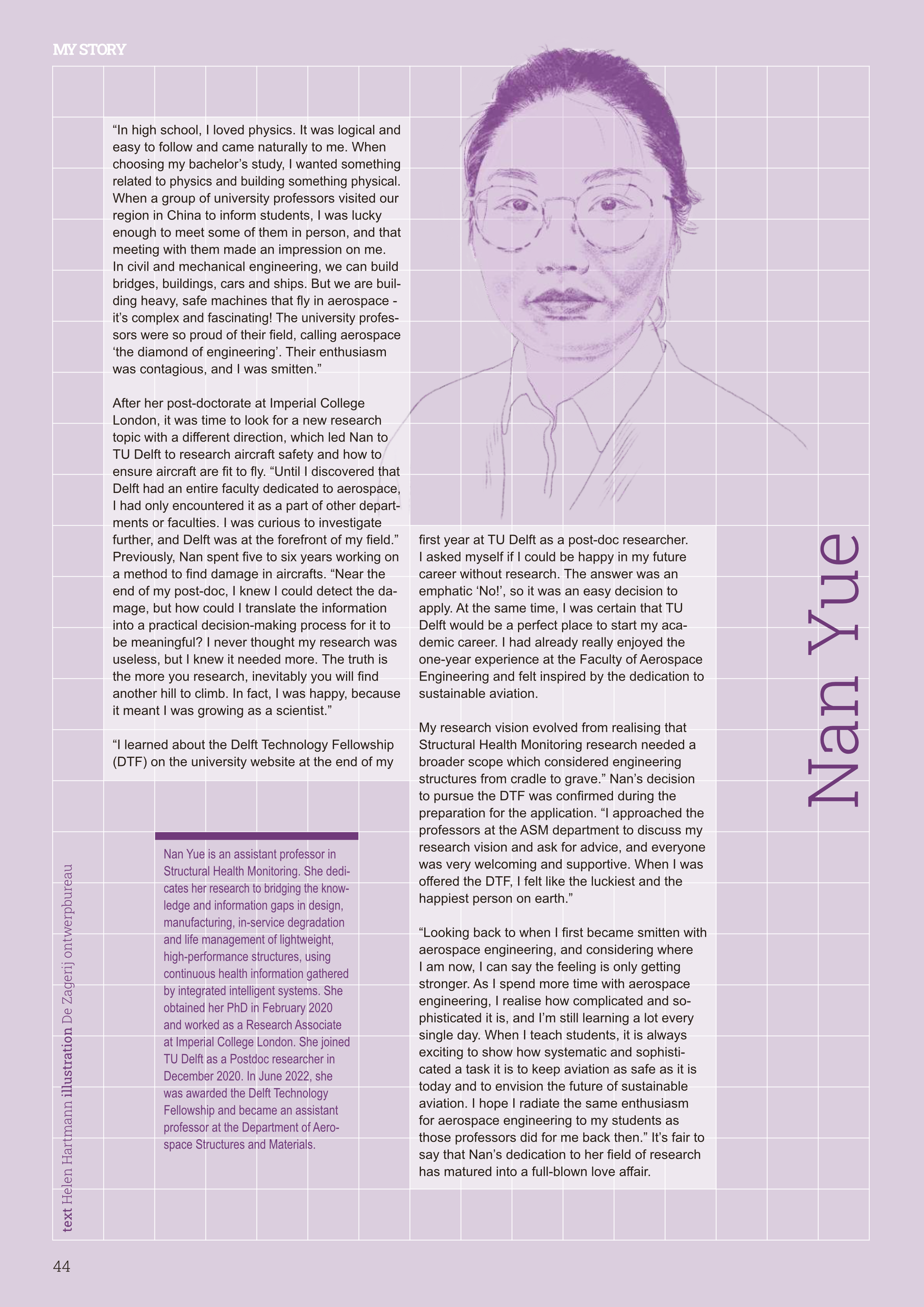Profile of a Safety and Security Researcher: Nan Yue
“In high school, I loved physics. It was logical and easy to follow and came naturally to me. When choosing my bachelor’s study, I wanted something related to physics and building something physical. When a group of university professors visited our region in China to inform students, I was lucky enough to meet some of them in person, and that meeting with them made an impression on me. In civil and mechanical engineering, we can build bridges, buildings, cars and ships. But we are building heavy, safe machines that fly in aerospace - it’s complex and fascinating! The university professors were so proud of their field, calling aerospace ‘the diamond of engineering’. Their enthusiasm was contagious, and I was smitten.”
After her post-doctorate at Imperial College London, it was time to look for a new research topic with a different direction, which led Nan to TU Delft to research aircraft safety and how to ensure aircraft are fit to fly. “Until I discovered that Delft had an entire faculty dedicated to aerospace, I had only encountered it as a part of other departments or faculties. I was curious to investigate further, and Delft was at the forefront of my field.” Previously, Nan spent five to six years working on a method to find damage in aircrafts. “Near the end of my post-doc, I knew I could detect the damage, but how could I translate the information into a practical decision-making process for it to be meaningful? I never thought my research was useless, but I knew it needed more. The truth is the more you research, inevitably you will find another hill to climb. In fact, I was happy, because it meant I was growing as a scientist.”
“I learned about the Delft Technology Fellowship (DTF) on the university website at the end of my first year at TU Delft as a post-doc researcher. I asked myself if I could be happy in my future career without research. The answer was an emphatic ‘No!’, so it was an easy decision to apply. At the same time, I was certain that TU Delft would be a perfect place to start my academic career. I had already really enjoyed the one-year experience at the Faculty of Aerospace Engineering and felt inspired by the dedication to sustainable aviation.
My research vision evolved from realising that Structural Health Monitoring research needed a broader scope which considered engineering structures from cradle to grave.” Nan’s decision to pursue the DTF was confirmed during the preparation for the application. “I approached the professors at the ASM department to discuss my research vision and ask for advice, and everyone was very welcoming and supportive. When I was offered the DTF, I felt like the luckiest and the happiest person on earth.”
“Looking back to when I first became smitten with aerospace engineering, and considering where I am now, I can say the feeling is only getting stronger. As I spend more time with aerospace engineering, I realise how complicated and sophisticated it is, and I’m still learning a lot every single day. When I teach students, it is always exciting to show how systematic and sophisticated a task it is to keep aviation as safe as it is today and to envision the future of sustainable aviation. I hope I radiate the same enthusiasm for aerospace engineering to my students as those professors did for me back then.” It’s fair to say that Nan’s dedication to her field of research has matured into a full-blown love affair.
Nan Yue is an assistant professor in Structural Health Monitoring. She dedicates her research to bridging the knowledge and information gaps in design, manufacturing, in-service degradation and life management of lightweight, high-performance structures, using continuous health information gathered by integrated intelligent systems. She obtained her PhD in February 2020 and worked as a Research Associate at Imperial College London. She joined TU Delft as a Postdoc researcher in December 2020. In June 2022, she was awarded the Delft Technology Fellowship and became an assistant professor at the Department of Aerospace Structures and Materials.
text Helen Hartmann illustration De Zagerij

